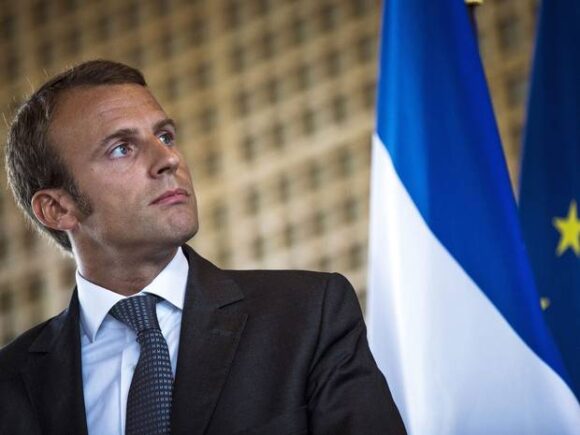
At first sight, the January visit of Emmanuel Macron to meet Xi Jinping might have appeared like the futile encounter between David and Goliath. But, in fact, it was a well thought-out strategic move and an illustration of Macron’s personal style of diplomacy.
Never before had any French president gone to China so early in his mandate. He timed his visit to seize the opportunity of a world stage left vacant by most of the players.
He came as an European leader, not as a French one. He stepped into the role Angela Merkel –– still embroiled in internal political negotiations to create a coalition government — had played for many years.
The trip was put under the symbols of history and culture shared by France and China. Instead of Pekin, it started in Xi-an, Shaansi province, where the discovery of an imperial tomb made world headlines in 1974. The tomb contained 8,000 terracotta warriors, horses, and chariots, dating back from the golden age of the Han dynasty (206 BC-220 AD.)
During her several visits to Asia, German chancellor Merkel had openly blamed the Chinese government for its violation of human rights. Unfortunately, this method did not bring any positive results.

Macron chose a more pragmatic approach, limiting his criticisms to subliminal remarks. According to analysts, his diplomacy can be described as “Gaullienne.” At a press conference in 1964, General de Gaulle abandoned his aloof and philosophical tone and declared that, to talk with leaders having opposing views, did not mean having to agree with or condone them.
Linguistics can create difficulties since the key words used be the two sides may have different meanings. Take for instance the definition of “terrorism.” For Xi Jinping, it mostly refers to the activity of the autonomists Ouïgours whereas for Macron it means the bomb attacks inflicted on the French population by radical followers of Daesch.
To conduct diplomacy with China is to enter a minefield. Two examples. One does not attack China frontally for its action in the South China seas because the Chinese government considers this region as its private turf. Macron would like China to help with the efforts of the G5 to fight terrorism in the Sahel but it might become a two-sided sword because interference by China in the region is not really wanted.
On the crucial topic of the nuclear threat coming from North Korea, the French president could only reinforce the European Union (EU) position. He complimented Xi Jinping for becoming the world leader in the fight against global warming, and for being a staunch defender of the Paris Accord.
Fifty CEOs of leading French companies were part of the trip, which was marked by the signing of enormous contracts. The Chinese government ordered 134 A320 Airbus commercial planes. AREVA, the French multinational specialized in nuclear power and renewable energy, signed an agreement China National Nuclear Corporation (CNNC) to build facilities for the reprocessing of nuclear waste. The largest existing plant in the world is located in La Hague, near Le Havre. Cooperation in the agro-business will be developed. The Chinese enjoy French beef but since 2011 an embargo had been imposed on the imports following the “mad cow” disease.
The surplus of the Franco-Chinese trade balance amounts to $30 billion in favor of China. Macron wants too re-equilibrate those figures. His objective is to widen the types of exports beside foodstuff or cosmetics and include digital technology, artificial intelligence and other sectors.
The silk road sounds like a romantic concept, which makes one dream. but in reality it is pharaonic project where the Chinese plan to invest around $1,000 billions to build a network of rail, maritime, land, or air routes to export its products. Almost needless to say, this project is worrying many … starting with Macron, who declares that the silk road should be a two-way road. Historically the silk road was developed in the Han dynasty and its starting point was the town of Xi-an (cf. above.)
During the official visit to Pekin of the French presidential couple, it was impossible not to notice the spectacular redcoat (red is a symbolic color in Chinese, meaning happiness) worn by Brigitte Macron.
Translated into Chinese phonetics, the name Macron means “the horse that dominates the dragon.” Is that perhaps a good omen for Emmanuel Macron?
Editor’s Note: This is the opinion of Nicole Prévost Logan.

Nicole Prévost Logan
About the author: Nicole Prévost Logan divides her time between Essex and Paris, spending summers in the former and winters in the latter. She writes a regular column for us from her Paris home where her topics will include politics, economy, social unrest — mostly in France — but also in other European countries. She also covers a variety of art exhibits and the performing arts in Europe. Logan is the author of ‘Forever on the Road: A Franco-American Family’s Thirty Years in the Foreign Service,’ an autobiography of her life as the wife of an overseas diplomat, who lived in 10 foreign countries on three continents. Her experiences during her foreign service life included being in Lebanon when civil war erupted, excavating a medieval city in Moscow and spending a week under house arrest in Guinea.